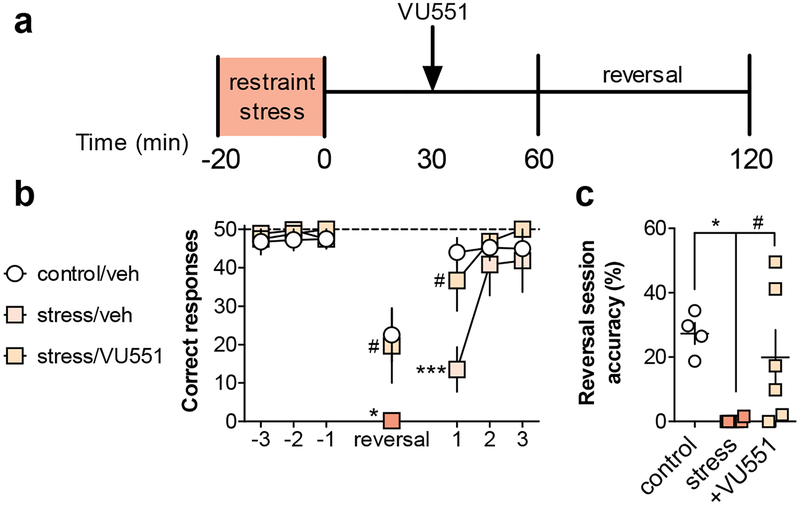Figure 7. Potentiating mGlu5 function rescues stress-induced deficit in early reversal learning.
(a) Schematic for behavioral experiments. Mice were trained in an operant conditioning apparatus to holepoke on a continuous schedule of reinforcement for liquid food. On the day of testing only, some mice underwent a 20-minute restraint stress exposure. One hour after the stress terminated, mice underwent an operant test session where the active holepoke designation was reversed. VU0409551 or vehicle was administered 30-minutes after the stress and before the reversal test session. (b) There was a trend effect of treatment (F2,13 = 2.9, p < 0.1), a significant main effect of session (F6,78 = 26.03, p < 0.001), and a significant interaction (F12,78 = 2.5, p < 0.01) on performance across training, reversal, and post-test sessions. Post-tests revealed that mice exposed to acute restraint exhibited a decrease in the number of correct holepoke responses on the day of the holepoke reversal (0 ± 1 vs. 23 ± 7 holepokes, N = 4–6 mice, *: p<0.05, Bonferonni post-test vs. control/veh). In addition, this deficit carried over until the following day, when the mice were not stressed before the initiation of the task (14 ± 6 vs. 44 ± 4 holepokes, ***: p<0.001, Bonferonni post-test vs. control/veh). VU0409551 administration rescued the stress-induced deficit in reversal learning on both the day of reversal and the following day (20 ± 10 holepokes, N = 6, #: p<0.05, Bonferonni post-test vs. stress/veh). (c) Stressed mice exhibited decreased accuracy during the reversal session (0 ± 0.3% vs. 27.4 ± 3.3% correct holepokes, N = 4–6, *: p<0.05, Bonferonni post-test vs. control) that was rescued by pretreatment with VU0409551 (20 ± 8.5% correct holepokes, N = 6, #: p<0.05, Bonferonni post-test vs. stress). mGlu3 and mGlu5, metabotropic glutamate receptor subtype 3 and 5; veh, vehicle; VU551, VU0409551.

